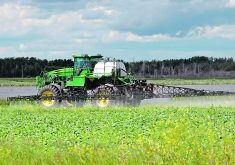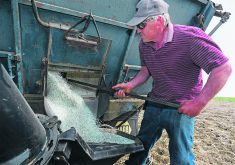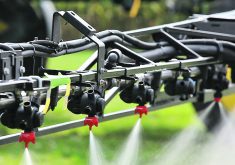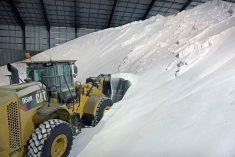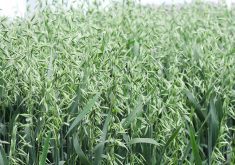As scientists around the globe intensify their quest to develop new soil microbes for enhanced crop production, a Minnesota company found its own path to manipulating these microscopic helpers.
Agnition’s two main microbial catalysts are engineered to massage and enhance soil microbes already living in the soil, rather than introduce new biological agents.
The two products, Generate and Commence, received Canadian Food Inspection Agency registration last month and will be available to Canadian wheat growers this spring.
The company said Generate boosted revenue by $22.45 per acre in 2016 field trials near Elgin, Man.
Read Also
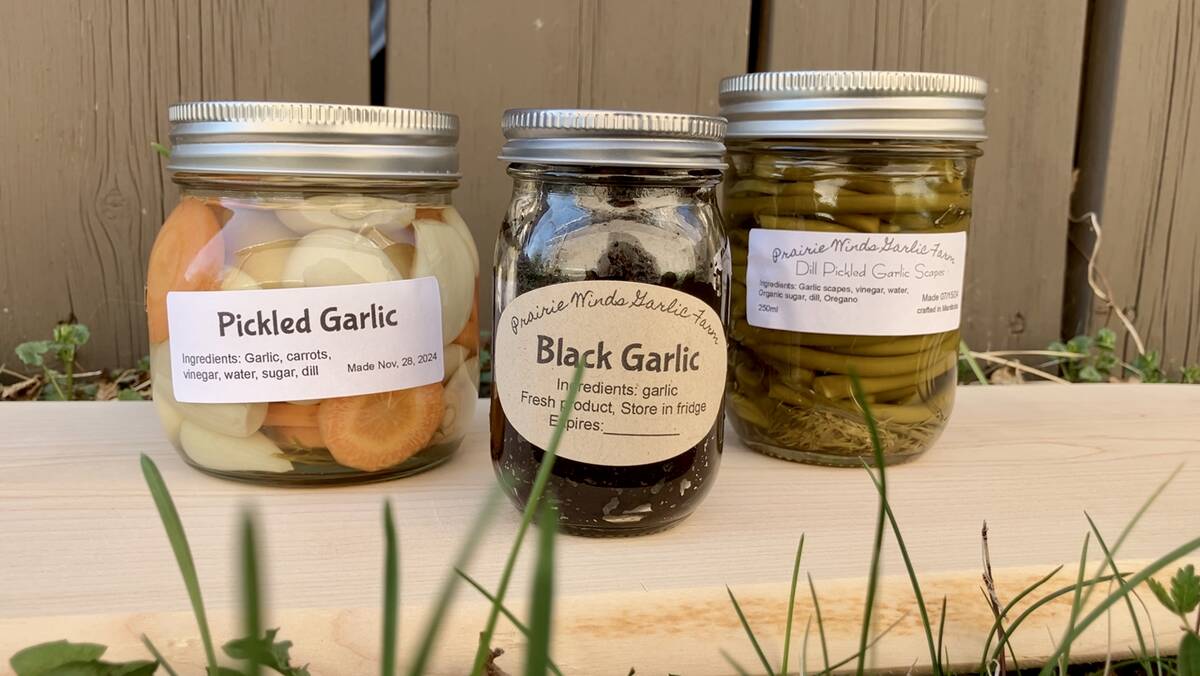
Growing garlic by the thousands in Manitoba
Grower holds a planting party day every fall as a crowd gathers to help put 28,000 plants, and sometimes more, into theground
The cost was $10 per acre, giving the Generate treated field a $12.45 per acre margin, in company trials, compared to the non-treated control field.
The plant science business that developed Generate and Commence is owned by the livestock feed giant RalcoNutrition, so working with biota is nothing new, said Agnition’s Andy Lanoue.
“What we’re doing with our microbial catalyst approach is to stimulate the natural microbes already in the soil to better serve the crop. We’re not taking the approach of other companies who are trying to move new living microbes into the soil,” he said
“Our chemistry straddles the line between micronutrients and biological products. We’re delivering product with the intent of stimulating microbes. It is not the intent of our microbial catalysts to directly feed the crop roots.”
Lanoue said microbial communities vary greatly from one area to the next, which is the main problem with trying to introduce new microbes into any given field. Microbes that are ideal for soil north of Calgary may not be a good fit for soil south of Edmonton. To custom tailor microbes for the soil in each region is expensive and unwieldy.
He said every soil has customized itself in accordance with the environment in which it evolved over tens of thousands of years.
Farmers know from experience that a single section of land may contain a half-dozen different recognizable soils. They differ in texture, organic matter and acidity, and each slight soil nuance is host to a slightly different microbial community.
“The benefit of trying to stimulate native microbes is that they have already adapted to their conditions,” Lanoue said.
“If we can get those existing microbes to work harder, they’ll make a better environment for the plant roots. The beauty of this approach is that we use the same microbial catalyst for all regions.… The microbial catalyst we’ve put in Generate and Commence is the same technology RalcoNutrition has been utilizing in rumen of cattle for about 45 years.”
Agnition learned this chemistry from the animal side of the company. Animal science applies more closely to plants than people realize, he said.
“The catalysts that stimulate microbes in cattle rumen to digest fibres are the same ones that help process nutrients in soils.”
Generate went on the market in the United States in 2011, followed by Commence in 2013.
Both are based on the same microbial catalyst technology and are now registered for use on wheat in Canada.
Generate can be applied as a foliar spray or in the furrow with the seed and is compatible with most fertilizer and crop protection products.
Lanoue said the catalyst penetrates the root zone even as a foliar spray because it’s an organic chelation with a very small molecule, which allows it to flow freely through the plant.
“Our polymer that binds the product to the seed is completely water-soluble,” he said. “The product sticks to the seed very firmly, but when it’s down in the moist soil, it loosens from the seed and begins interacting with the soil microbes and stimulating their activity.”






